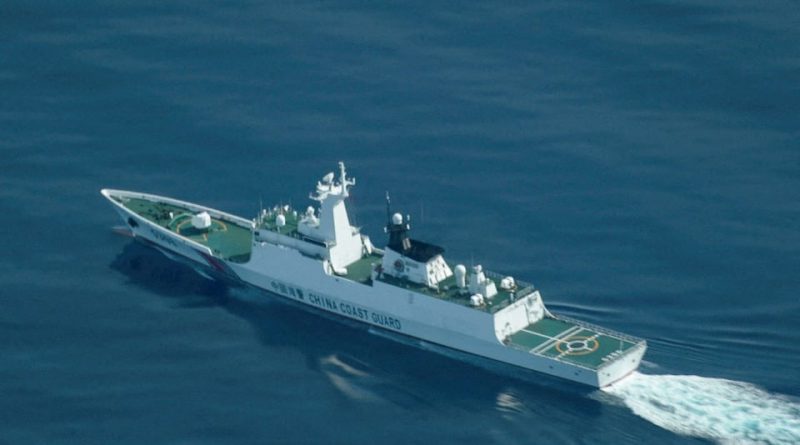China Calls for Calm and Dialogue After South China Sea Incident with the Philippines
Beijing — China has called for restraint and renewed dialogue with the Philippines following a recent maritime incident near the disputed islands in the South China Sea.
Emphasizing peace, cooperation, and regional stability, Chinese officials reaffirmed the country’s commitment to resolving differences through diplomatic channels rather than confrontation.
According to China’s Ministry of Foreign Affairs, the appeal was made after reports of a minor clash between Chinese and Philippine vessels near Sandy Cay, a small coral reef within the Spratly Islands.
The area, long contested by multiple nations, remains a sensitive zone for maritime navigation and resource exploration. Chinese Foreign Ministry spokesperson Lin Jian urged all parties to avoid actions that could heighten tensions, saying that China remains focused on “safeguarding peace, promoting dialogue, and ensuring the safety of all maritime routes in the region.”
A Call for Dialogue and Stability
Lin Jian reiterated China’s stance that maintaining regional stability and mutual respect should be the guiding principle for managing maritime disputes. He called on the Philippines to work with Beijing toward peaceful and constructive dialogue, noting that both nations share a long history of cultural, economic, and social ties.
“China hopes that the Philippines will stop actions that complicate the situation and instead return to the path of cooperation and consultation,” Lin said during the press briefing.
He emphasized that China’s efforts in the South China Sea are primarily aimed at safeguarding its territorial sovereignty and ensuring safe navigation, not at provoking conflict.
The spokesperson also highlighted that the Chinese Coast Guard and relevant authorities have acted with restraint and professionalism, focusing on preventing escalation and ensuring the safety of all personnel at sea.
This statement aligns with China’s consistent position that disputes should be managed under the framework of regional peace and international law, especially through mechanisms such as the Code of Conduct for the South China Sea, currently being negotiated between China and ASEAN member states.
Focus on Peaceful Development
In recent years, Beijing has repeatedly underlined its commitment to peaceful development and regional cooperation. China has been actively working with neighboring countries on initiatives that promote trade, connectivity, environmental protection, and joint maritime research.
Despite differing territorial claims, China continues to stress that disputes should not overshadow broader cooperation or economic growth in the Asia-Pacific region.
Analysts believe that China’s latest statement reflects a measured and diplomatic approach to the ongoing tensions. Rather than escalating rhetoric, Beijing is choosing to highlight the importance of mutual understanding and dialogue.
The South China Sea, one of the world’s busiest maritime trade routes, carries enormous strategic and economic importance — making stability in the region vital not just for claimant states but for the global economy.
Strengthening Regional Trust
The incident near Sandy Cay comes at a time when both China and the Philippines are seeking ways to rebuild trust and cooperation. The two nations have engaged in regular diplomatic consultations and previously cooperated on joint initiatives in areas such as fisheries management, coast guard communication, and environmental protection.
China’s call for dialogue reinforces its view that regional issues should be resolved among regional partners, without external interference.
Observers note that China’s foreign policy underlines non-confrontation and mutual benefit, particularly with neighboring ASEAN countries. Beijing’s consistent message has been that peaceful negotiation, rather than confrontation, is the most effective way to manage complex maritime issues.
A Positive Outlook for Peace
While maritime tensions continue to test regional relations, the tone of China’s latest response offers hope for constructive diplomacy and peaceful coexistence. By urging restraint and cooperation, China is signaling that it remains open to dialogue and practical solutions that uphold peace, security, and shared prosperity.
The latest developments serve as a reminder that diplomacy remains the most effective path forward. With careful negotiation and continued engagement, both China and the Philippines can contribute to a more stable, cooperative, and prosperous Asia-Pacific region, setting a positive example for peaceful conflict resolution in the modern world.



